
As an infant, the doctors diagnosed Autum Hall, 47, with a rare condition called Idiopathic Bronchiectasis, a lung condition where the lungs' airways become permanently enlarged by an unknown cause. The lungs progressively lose their elasticity and are unable to push out the air trapped within the lungs.
Autum’s lungs functioned around 16 percent. There is no cure for this condition and doctors have told Autum that she is approaching her "window" for a double lung transplant.
Lung transplants are incredibly high-risk operations. About 80 percent of people who receive lung transplants survive the first year. Each year following, there is an average of 10 percent who do not survive.
"I don't want a lung transplant," Autum said. "It's like starting your clock."
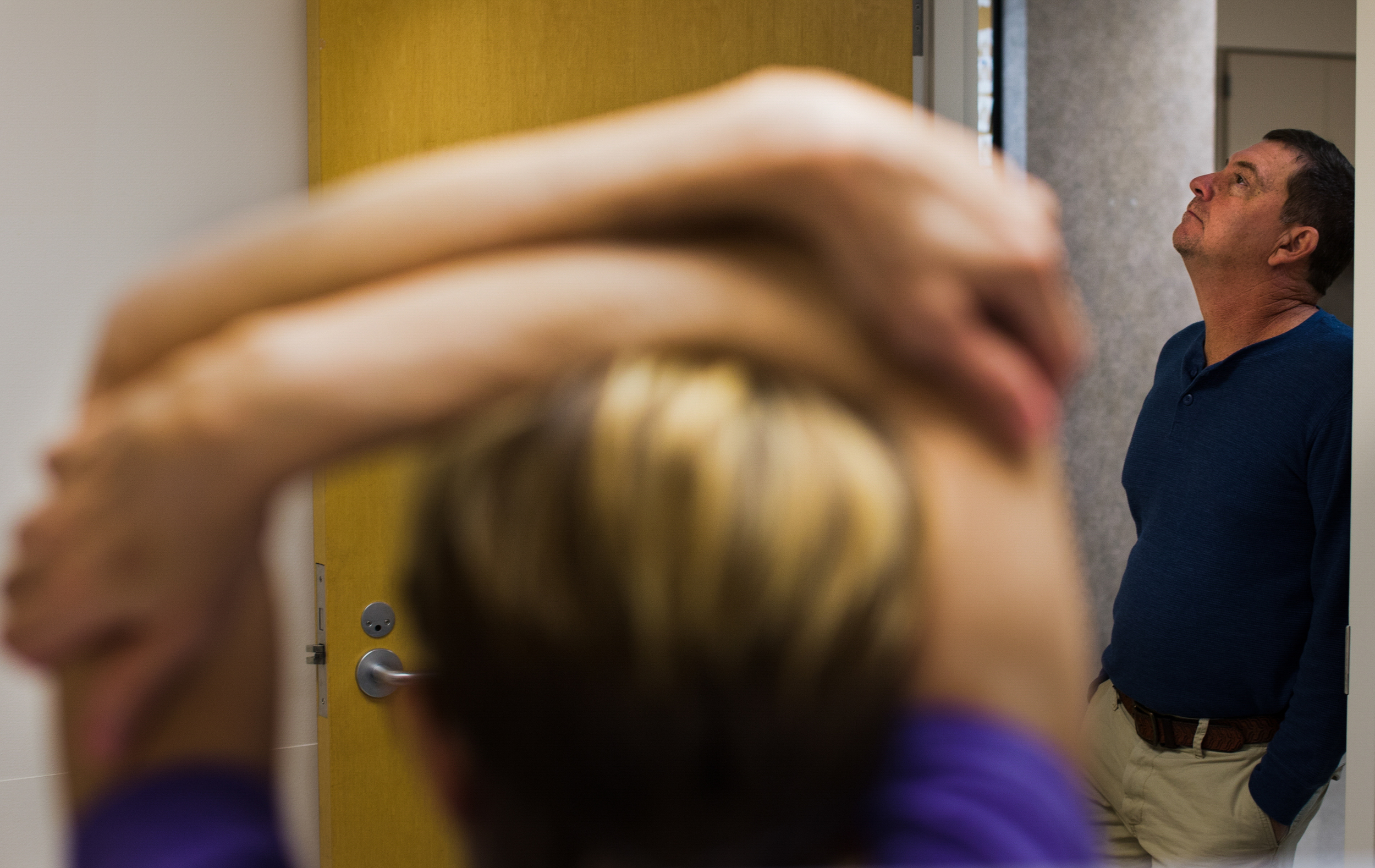
Autum’s doctor told her that she would need to relocate to Durham to prepare to be listed. She and her husband, Mitch Hall, wait to speak with the surgeon about Autum’s transplant at Duke University Hospital.
“I always felt like [a transplant] was on the back-burner,” Autum said. “It was kind of a surprise when [the doctors] said, ‘we think there’s been enough of a decline.’ [My physician] mentioned ‘worry' a couple times and that’s not a word you want to hear the doctor say.”
![“I’ve not felt limited by [my condition],” Autum said. “I’ve had limitations, but I’ve always known what they were.”](https://images.squarespace-cdn.com/content/v1/550a2745e4b0545b657a2540/1455160992004-QTLUU03H3X30RU29CJSR/UNC-CH_Johnston_Tegan_BreatheEasy00-3.jpg)
“I’ve not felt limited by [my condition],” Autum said. “I’ve had limitations, but I’ve always known what they were.”
![“Once you go through that door [to receive a transplant], there’s no going back,” Autum said. “[A transplant] is not a complete cure. You’re just trading one set of problems for another.” Autum takes one last walk through her closet to](https://images.squarespace-cdn.com/content/v1/550a2745e4b0545b657a2540/1455160670008-FFPT5JK3IY74ONG0I16G/UNC-CH_Johnston_Tegan_BreatheEasy004.jpg)
“Once you go through that door [to receive a transplant], there’s no going back,” Autum said. “[A transplant] is not a complete cure. You’re just trading one set of problems for another.”
Autum takes one last walk through her closet to collect what she needs before moving from her home in Autryville to Durham.
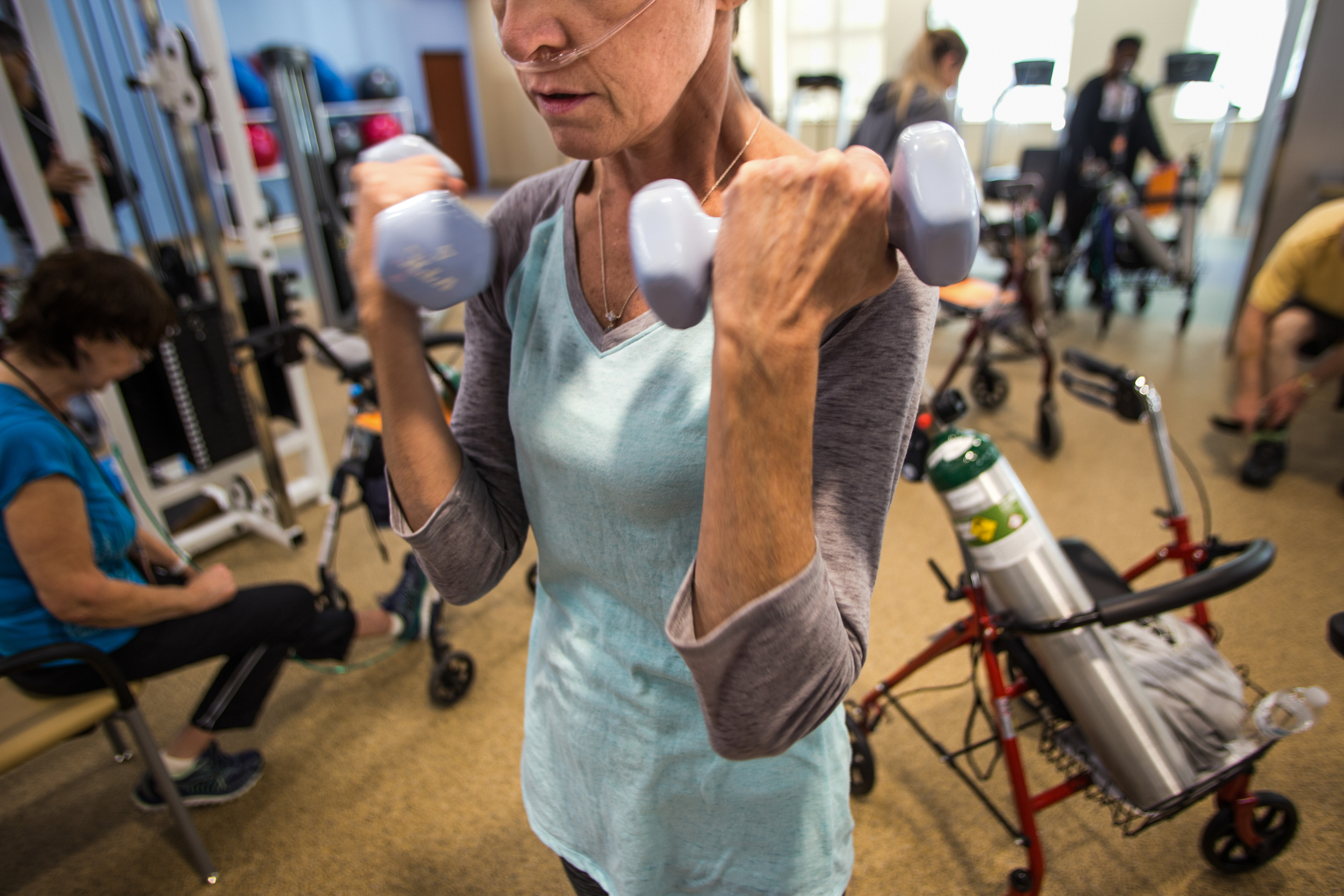
Autum attends pulmonary rehab multiple times a week to prepare her body for the surgery and recovery process.
"It's exhausting," Autum said. "I wake up and I think, ‘I'm stronger than I thought I was physically,’ and I just keep pushing."
![“I’m cautiously excited [for the transplant],” Autum said. “I don’t know what to expect, but I’m hoping it will be something wonderful.” Transplant candidates are chosen based on a lung allocation score that measures various factors of the ca](https://images.squarespace-cdn.com/content/v1/550a2745e4b0545b657a2540/1455160675352-RJBAUJFYEVSN22OXGARB/UNC-CH_Johnston_Tegan_BreatheEasy006.jpg)
“I’m cautiously excited [for the transplant],” Autum said. “I don’t know what to expect, but I’m hoping it will be something wonderful.”
Transplant candidates are chosen based on a lung allocation score that measures various factors of the candidate's condition. This score helps determine whether that person is suitable to be listed for a transplant.
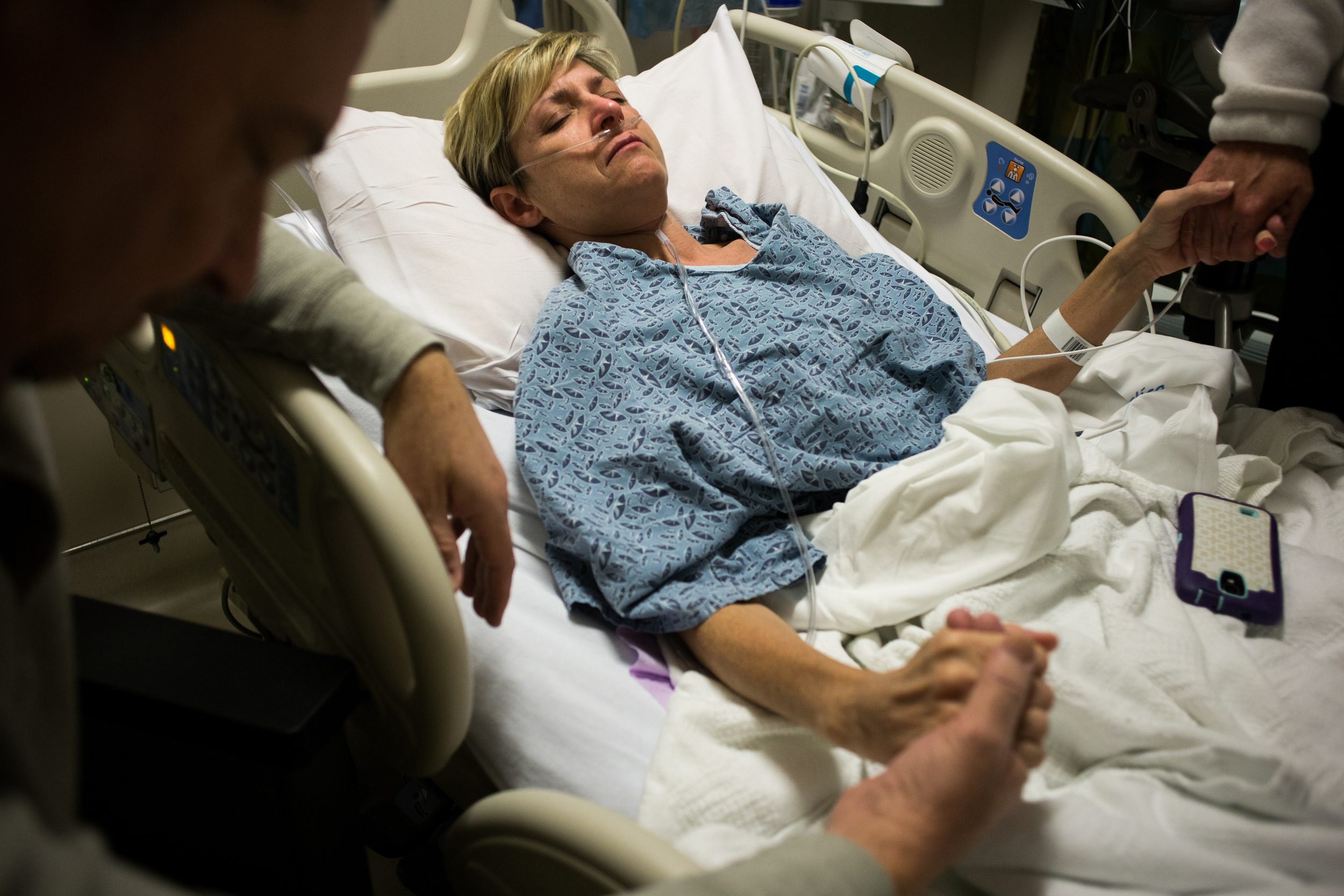
On November 21, 2015, Autum received a call that a pair of lungs had been approved for her transplant. Mitch and Autum’s best friend, Kelli McPhail, take her hands and lift her up in prayer before she is taken to the operating room.
"I have faith in God's timing," Autum said. "I wake up every morning and the first thing I do is say a prayer of thanksgiving for the day and then get started, because every day is a gift."
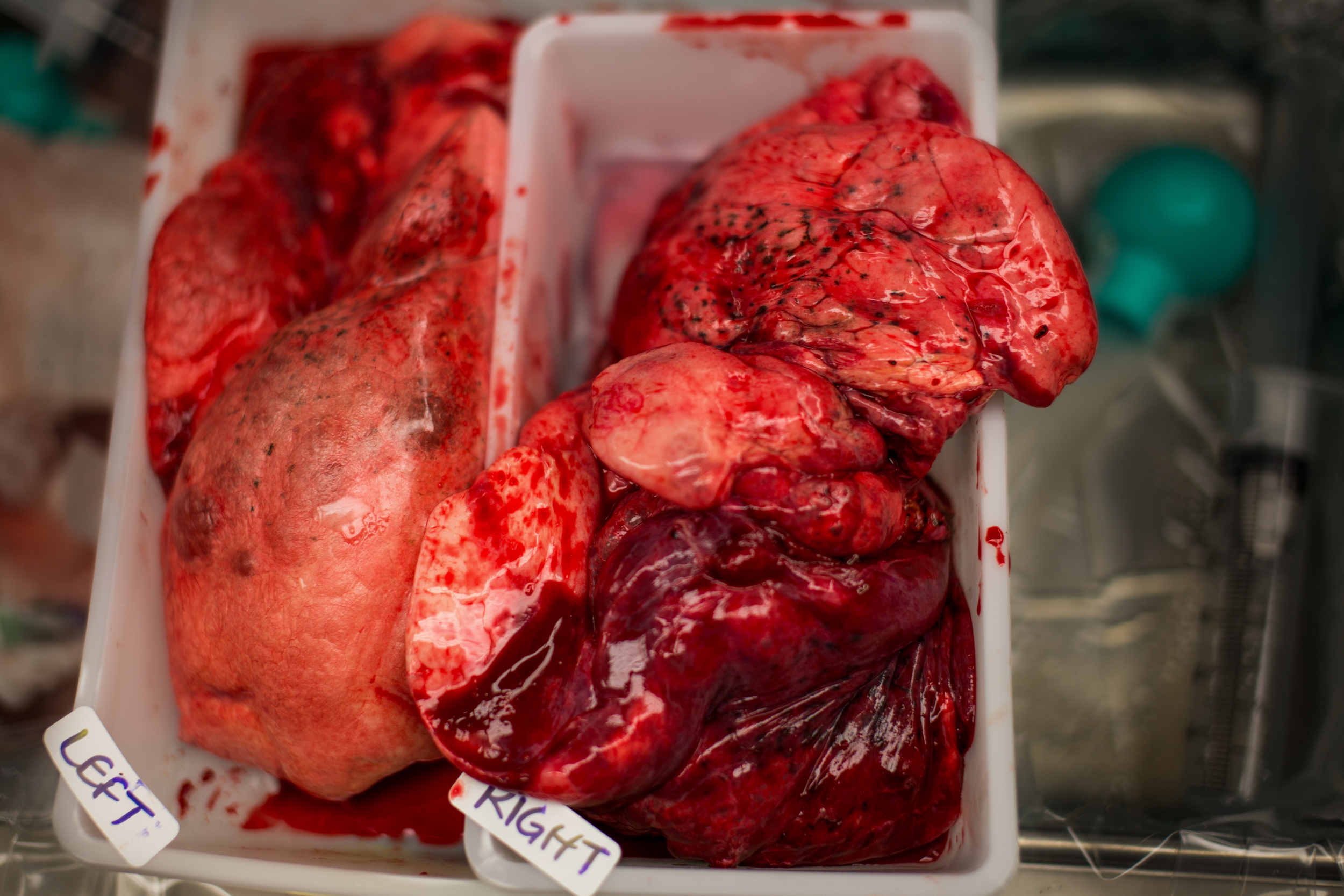
Autum's old lungs wait to be discarded after the operation.
"The support group that I participate in and the people that have shared their experiences have been invaluable to me throughout this process," Autum said. "Maybe one day somebody will hear my story and will be encouraged."
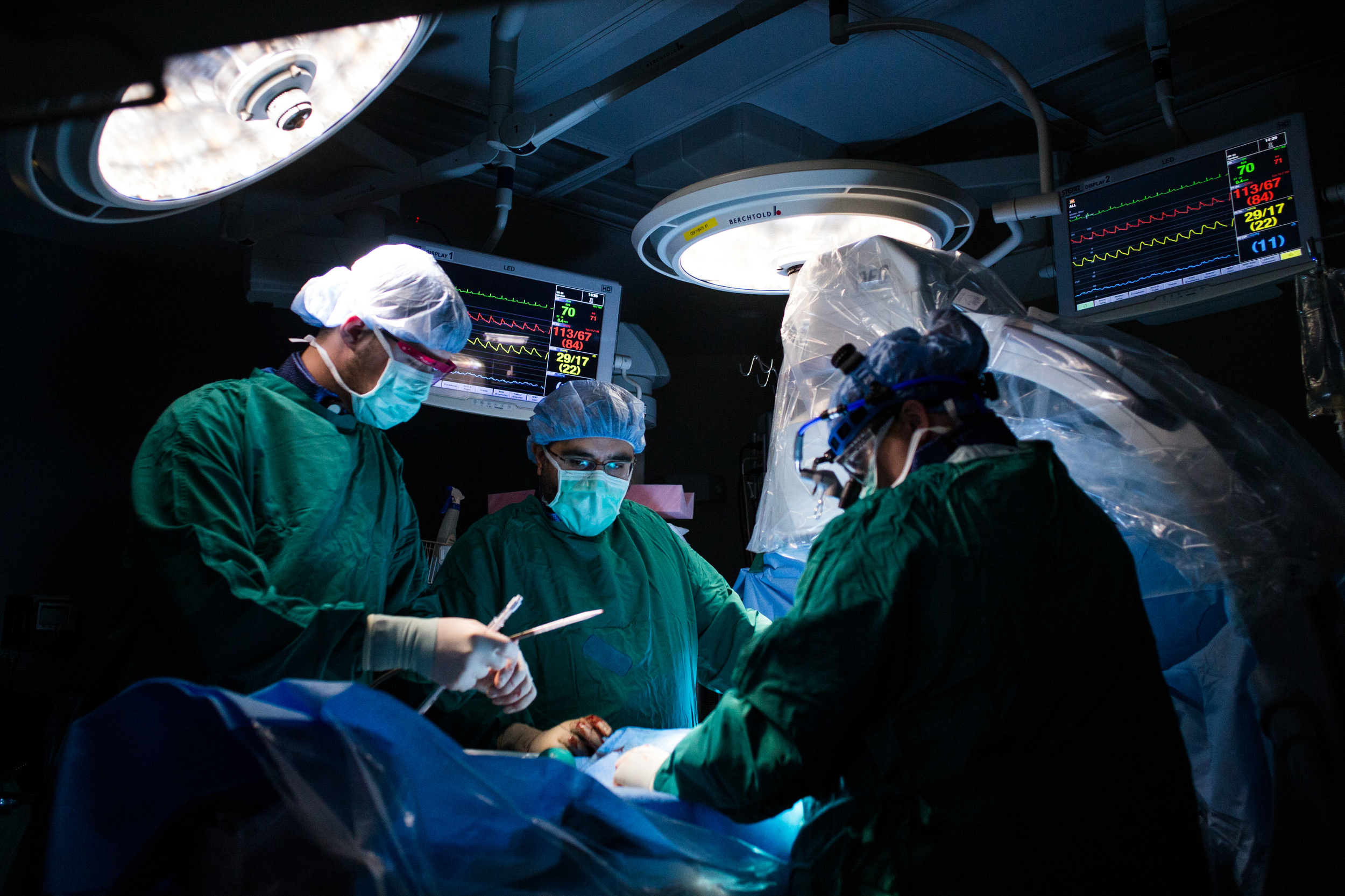
Duke University Hospital performs about 100 lung transplants every year. Autum is the 1,610th lung transplant performed at Duke.
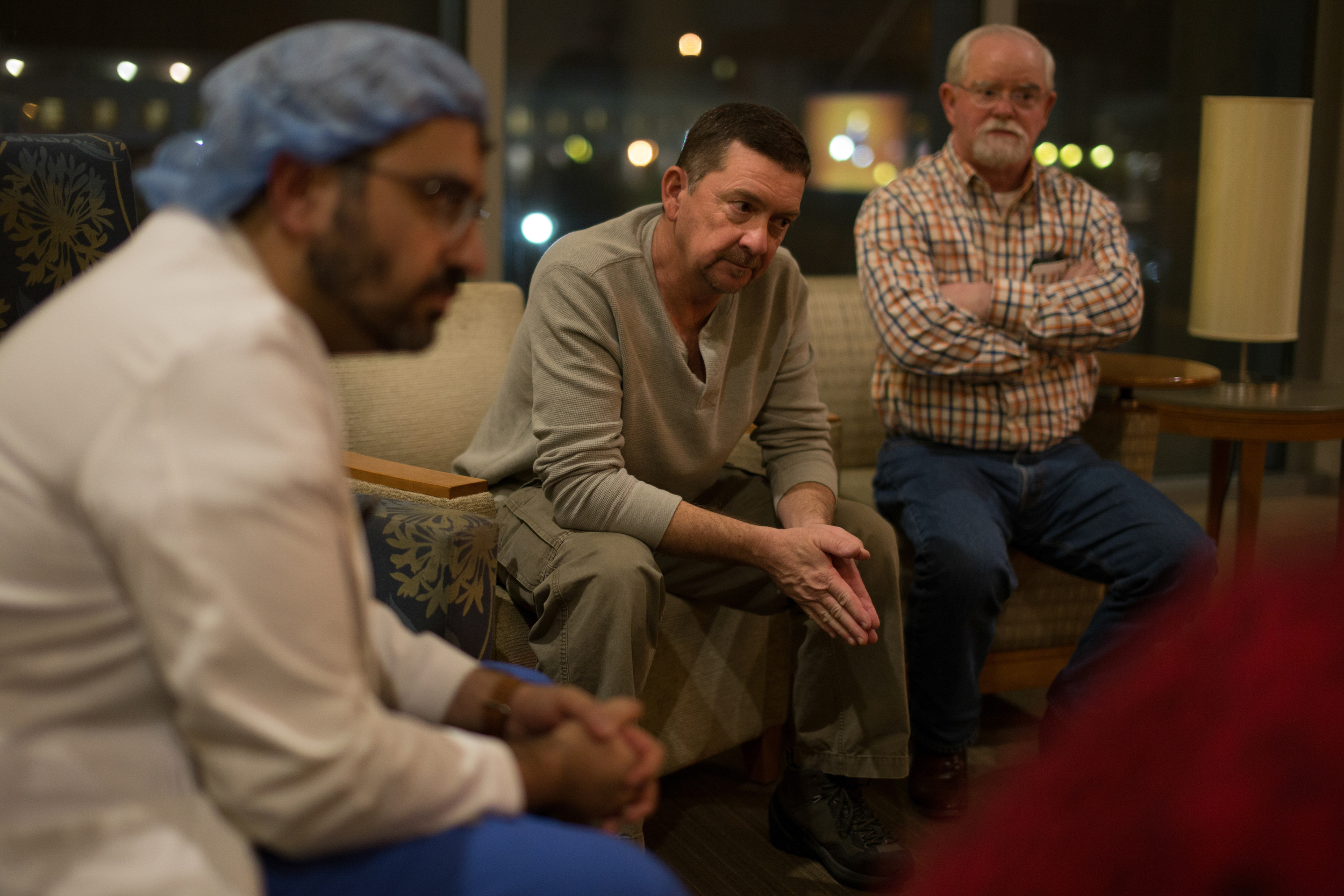
Autum's surgeon, Dr. Mani Daneshmand, updates Autum's family and friends after the surgery. He explains that Autum’s body did not respond well when they hooked her up to the extracorporeal membrane oxygenation, or ECMO, and they had to use the defibrillator to bring her back. The ECMO machine works in place of the lungs to oxygenate the blood during the surgery.
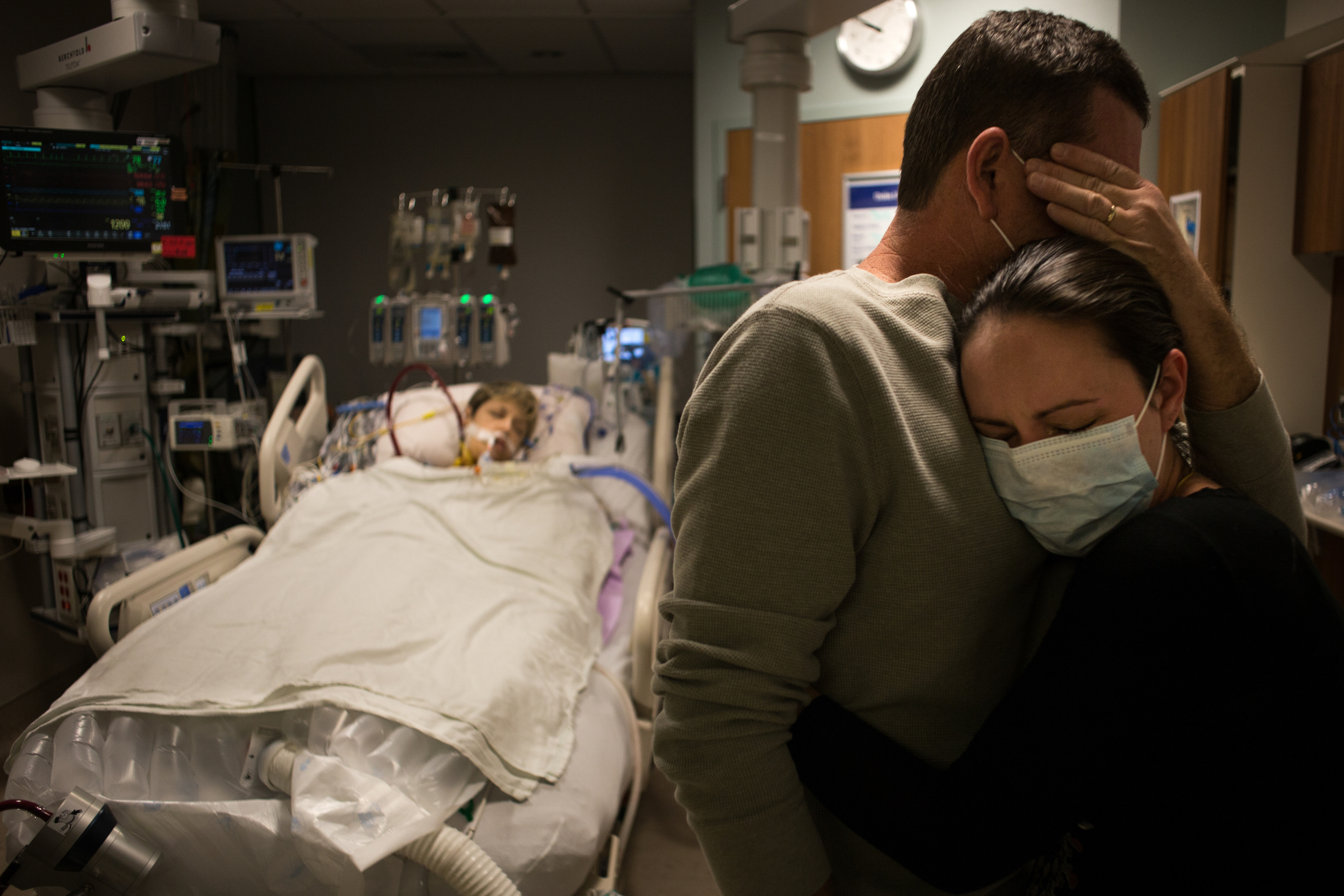
Mitch comforts his and Autum's daughter, Alyssa George, as they see Autum for the first time following the surgery.
“It doesn’t really even look like her,” Mitch said after seeing his wife.
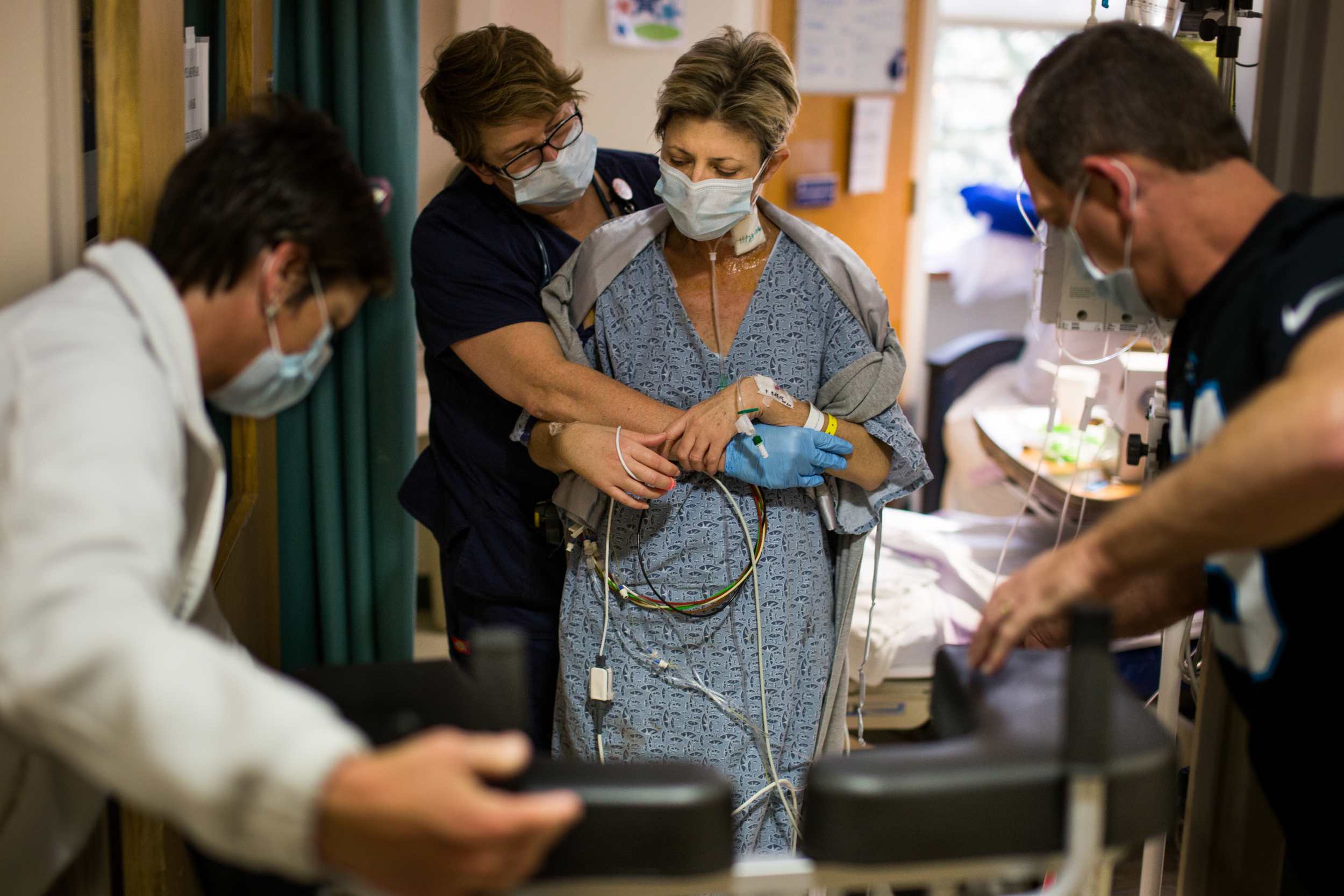
Autum's nurse helps her to the bed after walking two laps with a walker.
"I'm not in pain," Autum said. "It's uncomfortable sometimes, but I'm not in pain."
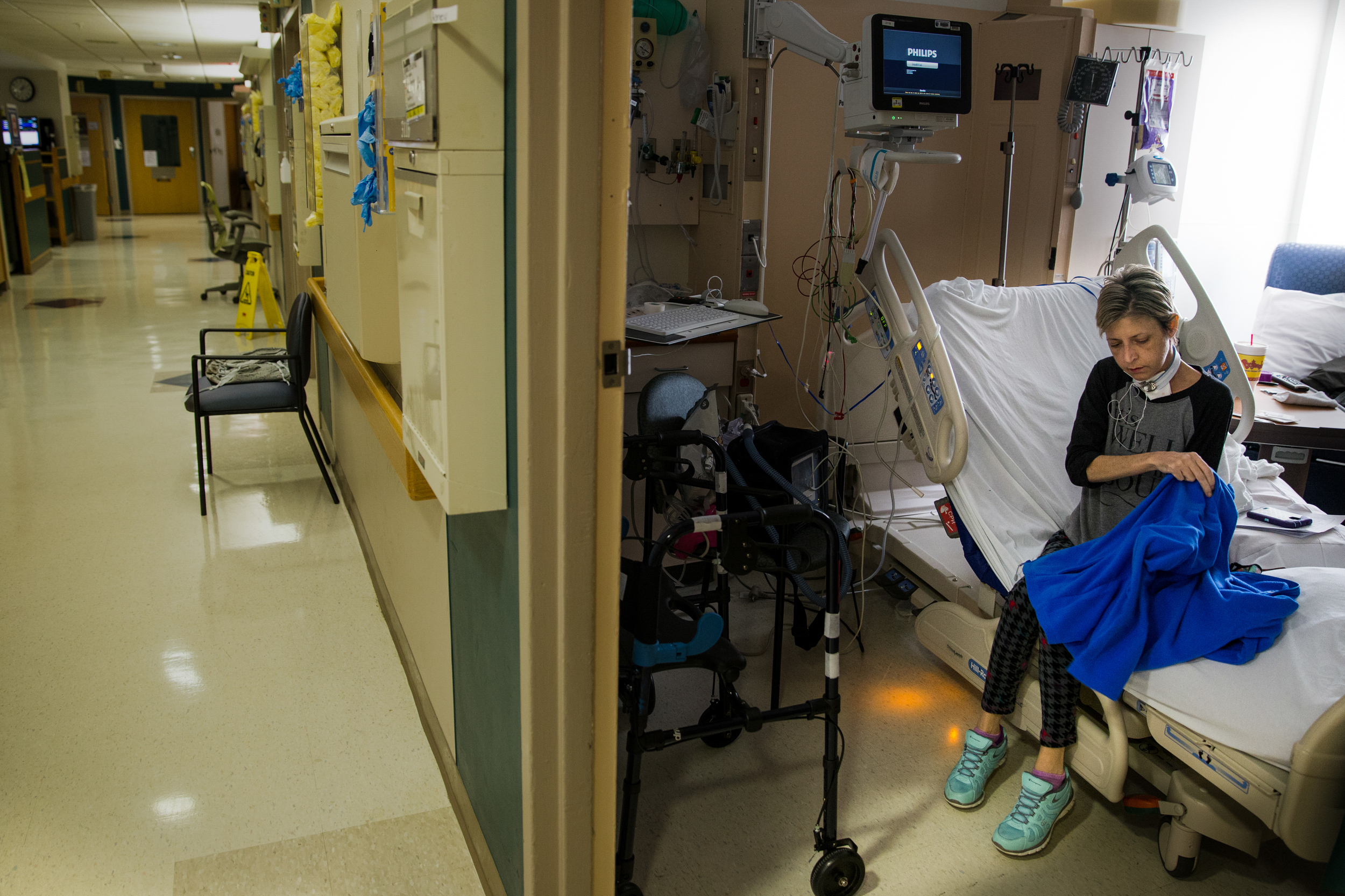
After three surgeries and 53 days in the hospital, Autum was cleared to return to her apartment in Durham on January 13, 2016.
“I think once I get out of these walls, I’ll really be able to start to improve,” Autum said.
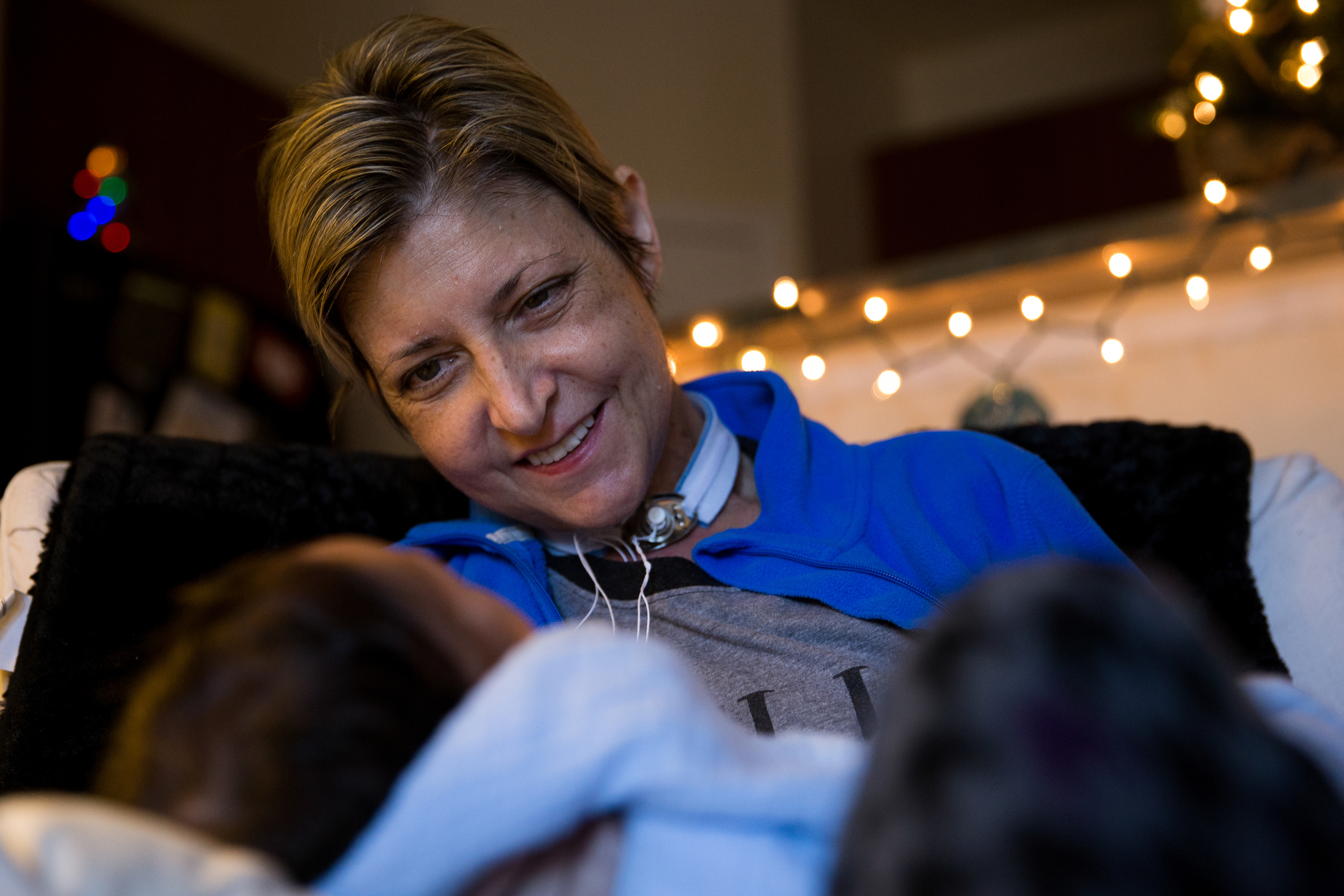
Autum meets her two-week-old grandson for the first time when she arrives at her apartment in Durham. Autum anticipates three more months of rehab before she will be cleared to return to her home in Autryville.
“It’s a long process,” Autum said. “But one well worth the pain of getting there.”


![“I’ve not felt limited by [my condition],” Autum said. “I’ve had limitations, but I’ve always known what they were.”](https://images.squarespace-cdn.com/content/v1/550a2745e4b0545b657a2540/1455160992004-QTLUU03H3X30RU29CJSR/UNC-CH_Johnston_Tegan_BreatheEasy00-3.jpg)
![“Once you go through that door [to receive a transplant], there’s no going back,” Autum said. “[A transplant] is not a complete cure. You’re just trading one set of problems for another.” Autum takes one last walk through her closet to](https://images.squarespace-cdn.com/content/v1/550a2745e4b0545b657a2540/1455160670008-FFPT5JK3IY74ONG0I16G/UNC-CH_Johnston_Tegan_BreatheEasy004.jpg)

![“I’m cautiously excited [for the transplant],” Autum said. “I don’t know what to expect, but I’m hoping it will be something wonderful.” Transplant candidates are chosen based on a lung allocation score that measures various factors of the ca](https://images.squarespace-cdn.com/content/v1/550a2745e4b0545b657a2540/1455160675352-RJBAUJFYEVSN22OXGARB/UNC-CH_Johnston_Tegan_BreatheEasy006.jpg)







